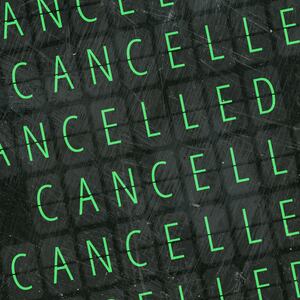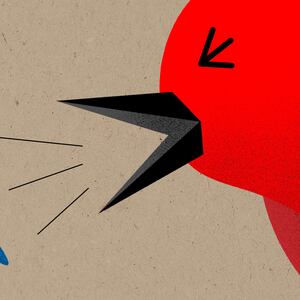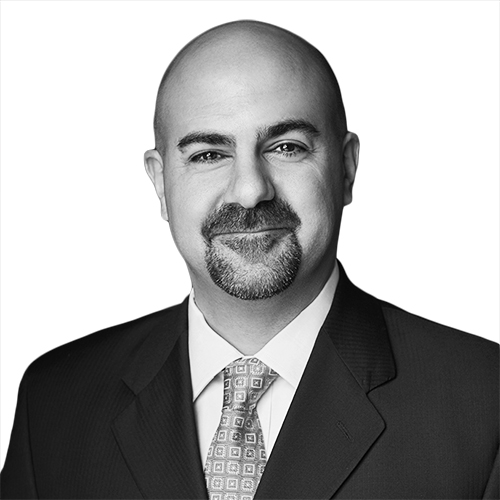Author Salman Rushdie was brutally stabbed on Friday prior to a lecture in New York state in front of a crowd of horrified onlookers.
The motive for the attack is, thus far, unclear, but given that Rushdie spent nine years in hiding after Iran’s Ayatollah Khomeini issued a 1989 fatwa authorizing his murder over his authorship of the novel, The Satanic Verses—which the Ayatollah considered blasphemous—and that Rushdie was attacked just as he was about to give a speech, an effort to silence Rushdie permanently through violence seems likely.
The message sent by a successful attack on Rushdie is loud and unmistakable: your hurtful speech is the equivalent of violence against me and my values, and you deserve violence in return. It’s a message intended not just for Rushdie, but for anyone who might be tempted to follow in his footsteps.
When we began our careers in free speech advocacy in the early 2000s, the conflation of the expression of opinion with physical violence was a fringe belief, at least in the United States. Yet over the last 10 years, we have seen that argument become far more common, first on college campuses, and then in our society at large)" href="https://urldefense.com/v3/__https://www.nytimes.com/2017/07/14/opinion/sunday/when-is-speech-violence.html?_r=0__;!!LsXw!Rl_0dMPXLKfSX7k75x-JJviUMrJuT8DA32TyzPoAV4PCTXWhNFk40wu8vC4-8KWyAKLQIXrD8JgXjC774vWbcZeYG7McnA82kPnG$">then in our society at large.
Advocates for seeing offensive speech as a form of violence tend to think that doing so would make society better. For example, just days after the riot that shut down a Milo Yiannopolous speech at the University of California-Berkeley in 2017, the Daily Californian student newspaper ran five op-eds in a single day)" href="https://urldefense.com/v3/__https://www.dailycal.org/2017/02/07/violence-self-defense/__;!!LsXw!Rl_0dMPXLKfSX7k75x-JJviUMrJuT8DA32TyzPoAV4PCTXWhNFk40wu8vC4-8KWyAKLQIXrD8JgXjC774vWbcZeYG7McnOOCCJBl$">five op-eds in a single day from authors who sought to justify the use of violence in order to prevent the political provocateur of the moment from speaking. “These were not acts of violence. They were acts of self defense,” concluded one of the pieces)" href="https://urldefense.com/v3/__https://www.dailycal.org/2017/02/07/black-bloc-campus__;!!LsXw!Rl_0dMPXLKfSX7k75x-JJviUMrJuT8DA32TyzPoAV4PCTXWhNFk40wu8vC4-8KWyAKLQIXrD8JgXjC774vWbcZeYG7McnL0gj2S0$">concluded one of the pieces.
These are not simply fringe opinions out of Planet Berkeley. In the largest campus survey)" href="https://urldefense.com/v3/__https://public.tableau.com/shared/HDNRYT5CN?:showVizHome=no__;!!LsXw!Rl_0dMPXLKfSX7k75x-JJviUMrJuT8DA32TyzPoAV4PCTXWhNFk40wu8vC4-8KWyAKLQIXrD8JgXjC774vWbcZeYG7McnKS19yE-$">largest campus survey of free expression, only 76 percent of students said it’s never acceptable to use violence to stop a campus speech. That is almost one in four students reporting some level of acceptance for violence to stop a speech they disagree with—even if they think it’s only “rarely” acceptable. This is alarming given that such efforts would be legal zero percent of the time. At some higher education institutions, such as Wellesley and Barnard, the percentage of students who say violence is never acceptable to stop a campus speech dropped to as low as 56 and 57 percent, respectively.
It is a great sign of comparative peace and progress that younger Americans can convince themselves of a rough moral equivalence between peaceful argument and violence as a means for resolving disputes. But if violence and hurtful speech are actually equivalent, it’s not only logical to answer speech with violence, it’s impossible to cogently argue that you shouldn’t. A downward spiral towards violence is guaranteed.
But we have no doubt that if our society reverted to solving more disputes using violence, they would quickly understand the superiority of liberal institutions like courts and Congress, and liberal norms like freedom of speech, over “might makes right.”
The vast majority of Americans who say that violent responses to speech are sometimes acceptable will nevertheless be appalled by the attack on Rushdie. Yet they must come to grips with the fact that today’s attack, multiplied thousands of times, is how a society where violence is acceptable protest to speech would actually look. Free speech, and the peaceful version of conflict resolution it enables, is the only solution to this problem that does not require authoritarian repression.
Quoting an unnamed writer, Sigmund Freud perceptively noted in 1893 that “the man who first flung a word of abuse at his enemy instead of a spear was the founder of civilization.” This is the painful lesson of thousands of years of human endeavor. It’s also a lesson our high schools, colleges, and institutions of all kinds have not lately bothered to teach. We may live to regret that oversight.
But beyond the hard-won lessons behind the speech/violence distinction, our thoughts are with Salman Rushdie and his family tonight. For his sake, and for all of ours, we hope that this brave artist will not only survive but live on to teach the world to never take a free and open society for granted.
Robert Shibley is Executive Director of the Foundation for Individual Rights and Expression)" href="https://urldefense.com/v3/__https://www.thefire.org/__;!!LsXw!Rl_0dMPXLKfSX7k75x-JJviUMrJuT8DA32TyzPoAV4PCTXWhNFk40wu8vC4-8KWyAKLQIXrD8JgXjC774vWbcZeYG7McnD9x7Pvh$">Foundation for Individual Rights and Expression. Greg Lukianoff is FIRE’s President and CEO.









